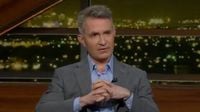In a series of recent and provocative incidents, the discourse surrounding controversial figures like Kanye West and Adin Ross has drawn significant attention, particularly in light of their remarks about Adolf Hitler and the Israeli-Palestinian conflict. This intersection of celebrity commentary and historical references has reignited debates about anti-Semitism and the responsibilities of public figures.
Kanye West, the Grammy-winning artist known for his erratic behavior and controversial statements, has recently reduced his Twitter activity compared to earlier months. However, he still manages to stir up conversations with his remarks. Most notably, West reacted to a shocking comment made by streamer Adin Ross, who referred to Adolf Hitler as "a great leader" during a livestream. This comment, which many found ironic given Ross's Jewish heritage, was intended as an observation of Hitler's ability to rally supporters, not an endorsement of his actions. West's response was a simple eyes emoji, indicating his acknowledgment of the statement.
Ross's comment and West's reaction highlight the complex relationship between the two, which has seen them oscillating between camaraderie and conflict. Despite the tension, West has expressed admiration for Ross, particularly after the streamer praised one of his recent songs during a livestream with Kodak Black. This multifaceted relationship exemplifies the often bizarre dynamics of celebrity interactions in today's media landscape.
Meanwhile, the situation escalated in the UK when Detective Constable Ibrahim Khan of the Metropolitan Police was dismissed for making anti-Semitic comparisons between the Israeli government and the Nazis. Khan shared several inflammatory posts on his Instagram Stories, including a photograph of a mass grave from 1945 juxtaposed with what he claimed was a mass grave in Gaza, and an image depicting Adolf Hitler morphing into Israeli Prime Minister Benjamin Netanyahu. His posts included statements like "Well done Israel, Hitler would be proud" and referred to Gaza as a "concentration camp."
The decision to terminate Khan's employment was based on the International Holocaust Remembrance Alliance (IHRA) definition of anti-Semitism, which includes drawing comparisons between Israeli policies and those of the Nazis. This definition, adopted by numerous countries, has been contentious, with some arguing it stifles legitimate criticism of Israel.
In the fallout from Khan's dismissal, the decision maker noted the "significant aggravating factor" of the national concern regarding anti-Semitism and the sensitive nature of the Israeli-Palestinian conflict. Khan's comments were deemed particularly offensive given his role in investigating hate crimes, raising questions about bias and accountability within policing.
This controversy mirrors ongoing discussions about how public figures address historical atrocities. British social commentator Douglas Murray recently criticized Joe Rogan for hosting guests who espouse revisionist views of history, such as claims that Hitler was not a significant anti-Semite and that he sought peace. During an appearance on Rogan's podcast, Murray expressed concern that such narratives could lead to a broader acceptance of harmful ideologies.
Murray's comments reflect a growing anxiety about the normalization of extremist views in popular media. He emphasized the importance of "basic social hygiene" in public discourse, arguing that promoting historical revisionism can pave the way for more dangerous ideologies to take root.
The discussions surrounding West, Ross, Khan, and Murray highlight a troubling trend in contemporary dialogue about history and morality. As public figures continue to engage in provocative statements, the line between free speech and harmful rhetoric becomes increasingly blurred. The reactions to these incidents underscore the need for accountability and a critical examination of the narratives being promoted.
In a world where social media amplifies every word, the responsibility of public figures to engage thoughtfully with history has never been more crucial. As the consequences of their words ripple through society, the impact on public perception and community relations can be profound.
As these conversations evolve, it remains essential for audiences to critically assess the messages being disseminated by influential figures. Whether through music, social media, or public commentary, the implications of their statements can shape societal attitudes and beliefs.
In conclusion, the ongoing discourse surrounding figures like Kanye West and the broader implications of anti-Semitic rhetoric in public life reveal a critical need for vigilance and responsibility. As society grapples with these complex issues, the challenge lies in fostering an environment where historical truths are respected and the promotion of harmful ideologies is firmly rejected.






